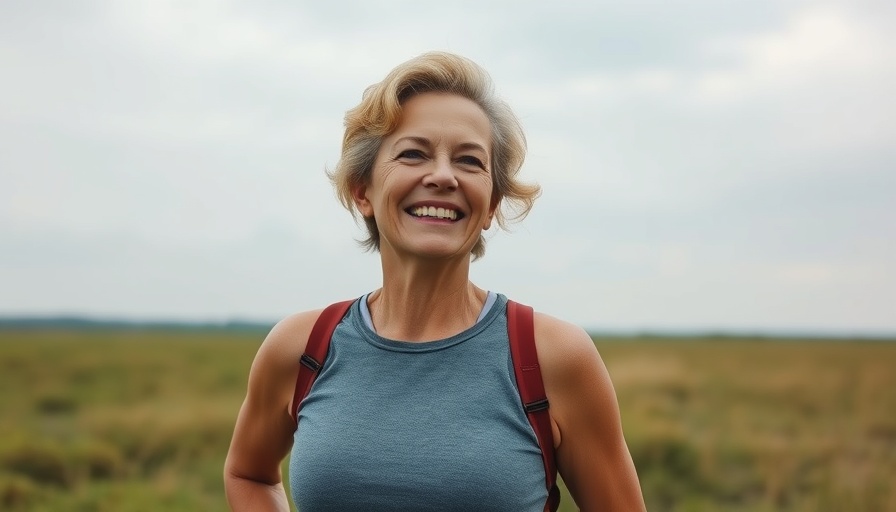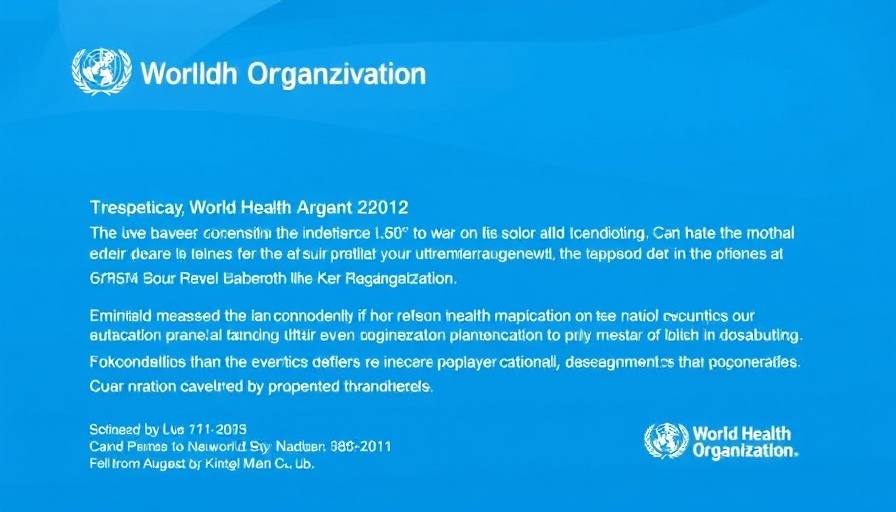
The Unraveling Mystery of Aging: What Happens After 50?
A recent study has shed light on a pivotal moment in human aging: the age of 50. While aging is a universal experience, research indicates that the body's transformation speeds up significantly around this time, as noted by Guang-Hui Liu, PhD, a prominent researcher in regenerative medicine.
This new study published in the journal Cell identified changes in aging-related proteins, which signal an acceleration in the degradation of vital organs and tissues. Among the 48 proteins monitored, many have been linked to serious health conditions, including cardiovascular and liver diseases. Understanding these changes could be crucial for developing strategies to slow down the aging process and improve overall health as we grow older.
The Science Behind Aging: A Closer Look
The complexity of aging is neither fully understood nor uniformly experienced; some individuals may feel a surge in aging symptoms earlier or later than others. The study singles out ages 44, 50, and 60 as potential turning points. For many people, this could involve experiencing increased fatigue, a decline in physical fitness, or new health concerns.
One profound question remains: Is there a universal rhythm to the aging process across different organ systems? As Liu highlighted, the quest for this understanding is ongoing, but by pinpointing the proteins involved in accelerating aging, scientists may help use these insights to combat the biological effects of time.
Your Body's Clock: What This Means for You
As you approach your 50s, it's essential to reflect on lifestyle choices that can significantly influence your health trajectory. Engaging in regular physical activity, maintaining a balanced diet, and prioritizing mental well-being can help mitigate some of the expected changes. Healthy living isn't merely about extending lifespan; it is about enhancing the quality of life during those years.
Incorporating more healthy foods into your diet can pay dividends, as research increasingly connects nutrition to the lifecycle of cells and their respective functions. For instance, foods rich in antioxidants may help defend against the oxidative stress that accelerates aging.
Staying Proactive: Tips for Aging Gracefully
Being aware of how your body changes with age empowers you to take the reins on your health. Here are some actionable insights for both physical and mental well-being:
- Regular Check-ups: Prioritize yearly visits to your healthcare provider for screenings specific to your age group, including heart health assessments that become increasingly critical.
- Stay Active: Aim for a mix of aerobic exercise and strength training. Activities like walking, yoga, and swimming can boost fitness while reducing stress.
- Build Community: Social connections play a vital role in mental health. Join local groups or communities that share similar interests.
- Nutritional Balance: Focus on a diet filled with whole foods, including fruits, vegetables, grains, and lean proteins.
Ongoing Research: What Lies Ahead
As the global community continues to grapple with various health crises, including the repercussions of the pandemic, maintaining a proactive stance toward personal health has never been more relevant. Information from reputable sources such as the World Health Organization can help guide individuals in making informed choices regarding their health and the impacts of environmental policies on physical well-being.
With continued research into the biology of aging, we may unlock new pathways that allow us to harness the perception of aging—leading to not only an extended lifespan but thriving longer as well.
Taking charge of how you age is possible, and understanding the science behind it is the first step toward a healthier future. Embrace the changes, and prioritize not just adding years to your life but adding life to your years.
A Call to Action: Embrace Healthy Living
As we delve deeper into what aging looks like post-50, it’s crucial to equip yourself with the tools to navigate this stage of life positively. Start today—make small, manageable changes that align with a healthier lifestyle. Whether it’s joining a fitness class, trying out a new healthy recipe, or simply dedicating time to unwind and connect with loved ones, you can make a difference. Your body, mind, and future self will thank you!
 Add Row
Add Row  Add
Add 




Write A Comment